Unlocking the Potential: Blockchain Integration in Mobile App Development
Mobile app development has grown to be a crucial business, generating innovation and improving user experiences as the globe embraces digital transformation. Developers now have the chance to transform mobile apps by integrating the strength of decentralized networks, improved security, and transparent transactions thanks to the quick development of blockchain technology. In this blog article, we will examine the advantages, real-world uses, and suggested methods for maximizing the use of blockchain integration in mobile app development.
- Understanding Blockchain Technology
Blockchain technology has seen a sharp increase in popularity over the last several years and has the potential to drastically alter many industries and business processes. Blockchain is fundamentally a decentralized, open, and transparent digital ledger that tracks and authenticates transactions among several computers, or nodes. It runs on a peer-to-peer network, doing away with the need for middlemen and centralized management.
The fundamental components of blockchain technology are what make it special and offer benefits. The main ideas to comprehend are listed below:
- Decentralization: Unlike traditional centralized systems, blockchain operates on a distributed network where multiple participants maintain a copy of the ledger. This decentralized nature ensures that no single entity has complete control over the system, enhancing security and reducing the risk of data manipulation or censorship.
- Distributed Ledger: Each block in the chain-like structure that makes up the blockchain ledger comprises a batch of validated transactions. Every member of the network has a copy of the whole ledger, resulting in a synchronized and shared database. Transparency and immutability are made possible by this distributed ledger since any modifications to the ledger require agreement from all network users.
- Cryptography: Blockchain ensures data accuracy and transaction security via cryptographic techniques. Cryptographic hashes give each block a unique identity, while digital signatures ensure the truth and immutability of transactions. These data protection strategies using cryptography foster confidence and guard against illegal modifications or manipulation.
- Consensus Mechanisms: Consensus mechanisms are systems that guarantee participant agreement on the legitimacy of transactions and the sequence in which they are added to the blockchain. Proof-of-Work (PoW), the consensus algorithm most commonly associated with Bitcoin, requires miners to solve challenging mathematical problems in order to validate transactions. Alternative methods for attaining consensus with minimal energy usage include Proof-of-Stake (PoS) and Delegated Proof-of-Stake (DPoS), two more consensus techniques.
- Smart Contracts: Smart contracts are agreements that automatically carry out their obligations because they are encoded in code. When specific requirements are satisfied, these contracts automatically carry out predetermined activities. Smart contracts, which are based on blockchain technology, enable automation and trust, doing away with the need for middlemen and simplifying procedures across a variety of industries, including real estate, banking, and supply chain management.
By enhancing transparency, security, and efficiency, blockchain technology has the potential to disrupt several sectors. Beyond cryptocurrencies, it has uses in things like supply chain management, healthcare, voting systems, and decentralized finance. Understanding the fundamentals of blockchain technology offers the groundwork for examining its potential and utilizing its advantages in a variety of fields.
- Benefits of Blockchain Integration in Mobile Apps
Integrating blockchain technology into mobile apps offers a range of benefits that can enhance user experiences, security, and transparency. Here are some key advantages of blockchain integration in mobile app development:
- Enhanced Security: Blockchain’s cryptographic techniques and decentralized nature provide heightened security for mobile apps. The use of public-private key pairs ensures secure authentication, while cryptographic hashing protects data integrity. Blockchain’s distributed ledger system reduces the risk of data breaches and unauthorized access, as data is stored across multiple nodes rather than a centralized server.
- Transparency and Immutability: The transparency of blockchain technology allows for real-time transaction visibility and auditability. Every transaction that is recorded on the blockchain is irreversible and impervious to manipulation, producing an unchangeable and verifiable record. Users’ confidence is increased and responsibility is improved in a variety of app use cases, such as supply chain management and financial transactions.
- Decentralization and Elimination of Intermediaries: Peer-to-peer transactions are made possible by blockchain integration without the use of middlemen or centralized authority. This removes the need for conventional middlemen, simplifies operations, and lowers related expenses. Blockchain technology may be used by mobile apps to provide direct and secure user interactions, improving efficiency and eliminating pointless intermediaries.
- Data Privacy and Ownership: With blockchain, users have greater control over their data. Instead of relying on centralized servers that store user information, blockchain-based mobile apps can give users ownership and control of their data through decentralized identity management solutions. Users can selectively share their data, improving privacy and reducing the risk of data breaches.
- Trust and Authenticity: Blockchain’s transparent and immutable nature enhances trust and authenticity in mobile app interactions. By leveraging blockchain, mobile apps can provide proof of authenticity for digital assets, verifying ownership and reducing the risk of counterfeit or fraudulent activities. This is particularly relevant in areas such as digital collectibles, intellectual property rights, and certificates.
- Fast and Secure Transactions: Blockchain-powered mobile apps can facilitate fast and secure transactions. By eliminating the need for intermediaries or traditional banking systems, blockchain enables peer-to-peer transactions that are often faster and more cost-effective. This benefit is especially valuable for mobile payment apps, remittances, and cross-border transactions.
- Disintermediation and Cost Reduction: Integration of blockchain in mobile apps can remove intermediaries and associated costs. Traditional intermediaries, such as banks or payment processors, may introduce delays and fees. By leveraging blockchain, mobile apps can streamline processes, reduce costs, and provide users with more direct control over their transactions.
Blockchain integration in mobile apps has the potential to revolutionize industries and transform user experiences. By leveraging the benefits of enhanced security, transparency, decentralization, and trust, mobile apps can provide innovative solutions that empower users and reshape traditional processes.
- Use Cases for Blockchain Integration in Mobile Apps
The potential use cases for blockchain integration in mobile apps are vast and varied. This section will explore some compelling examples, including:
- Decentralized Finance (DeFi): Discussing how blockchain can enable mobile apps for decentralized lending, borrowing, and yield farming.
- Supply Chain Management: Exploring how blockchain can enhance traceability and transparency in supply chain apps, reducing fraud and ensuring product authenticity.
- Identity Management: Discussing the potential for blockchain-powered mobile apps to provide self-sovereign identity solutions, protecting user data and streamlining verification processes.
- Mobile Payments and Remittances: Examining how blockchain can revolutionize mobile payment apps, enabling secure, fast, and low-cost cross-border transactions.
- Voting and Governance: Exploring the potential for blockchain-based mobile apps to facilitate secure and transparent voting processes, ensuring integrity and eliminating fraud.
- Best Practices for Blockchain Integration in Mobile App Development
Blockchain integration in mobile apps opens up numerous possibilities for innovative solutions across various industries. Here are some prominent use cases that demonstrate the potential of blockchain integration:
- Decentralized Finance (DeFi): Blockchain integration can enable mobile apps for decentralized finance, providing users with direct access to financial services such as lending, borrowing, and asset management. Mobile apps can leverage smart contracts on the blockchain to facilitate secure and automated transactions without intermediaries.
- Supply Chain Management: Blockchain integration in mobile apps can enhance transparency and traceability in supply chains. Mobile apps can enable users to track and verify the origin, authenticity, and movement of products by recording transactions on the blockchain. This improves efficiency, reduces counterfeiting, and ensures ethical sourcing.
- Identity Management: Mobile apps integrated with blockchain can provide self-sovereign identity management solutions. Users can have greater control over their personal data and selectively share it with trusted entities, improving privacy and reducing reliance on centralized identity systems. Blockchain ensures secure and tamper-proof verification of identity information.
- Mobile Payments and Remittances: Blockchain integration can revolutionize mobile payment apps by enabling fast, secure, and low-cost transactions. Mobile apps can leverage blockchain’s decentralized nature to facilitate peer-to-peer transfers, eliminating intermediaries and reducing transaction fees. This is particularly beneficial for cross-border remittances.
- Voting and Governance: Blockchain-powered mobile apps can enhance the transparency, security, and integrity of voting systems. By recording votes on the blockchain, mobile apps can ensure immutability, prevent fraud, and enable verifiable counting. This strengthens the trust in democratic processes and allows for more inclusive and accessible voting mechanisms.
- Intellectual Property Management: Mobile apps integrated with blockchain can streamline intellectual property rights management. Blockchain provides a secure and immutable record of ownership and rights, preventing unauthorized use or infringement. Mobile apps can facilitate the registration, licensing, and transfer of intellectual property assets.
- Healthcare Data Management: Blockchain integration in mobile apps can improve the security and interoperability of healthcare data. Mobile apps can enable patients to securely access and control their medical records, facilitating seamless sharing with healthcare providers. Blockchain ensures data integrity and enhances privacy in sensitive healthcare information.
- Digital Collectibles and Gaming: Mobile apps can leverage blockchain integration to enable the creation and trading of digital collectibles and in-game assets. Blockchain ensures ownership verification, scarcity, and authenticity of digital assets, allowing users to collect, trade, and monetize their virtual items securely.
- Energy Trading: Blockchain integration can facilitate peer-to-peer energy trading through mobile apps. Users can exchange excess renewable energy directly with other users on a decentralized energy marketplace, promoting sustainability and reducing reliance on traditional energy systems.
These use cases highlight the potential of blockchain integration in mobile apps to revolutionize industries, enhance transparency, security, and efficiency, and empower users with greater control over their data and transactions. As blockchain technology continues to evolve, more innovative use cases are expected to emerge, further expanding the possibilities for blockchain-powered mobile apps.
Conclusion
By boosting security, trust, and user experiences, blockchain integration in mobile app development has the potential to transform the sector. Developers may fully utilize blockchain in their mobile app projects by comprehending the underlying technology, investigating numerous use cases, and adhering to best practices. Integrating blockchain into mobile applications will become more and more important for keeping ahead in a world that is dominated by the internet as it develops and becomes more widely used. Enable a new age of mobile app development by embracing the potential of blockchain integration.



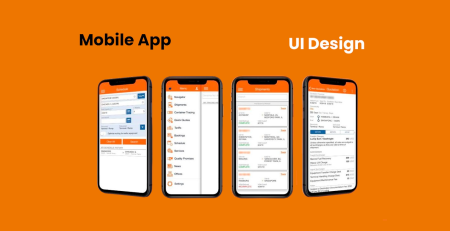
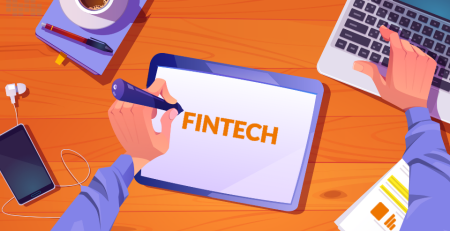
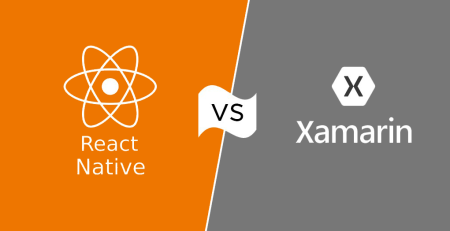
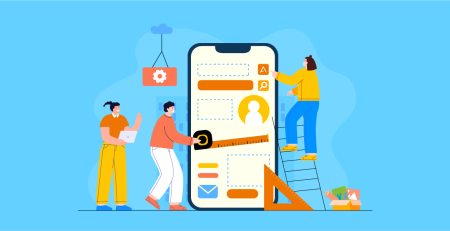
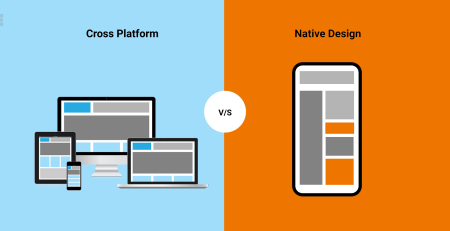

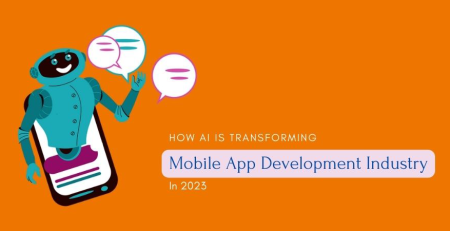
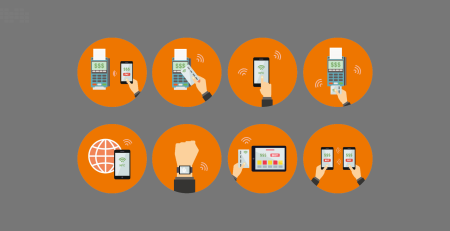


Leave a Reply